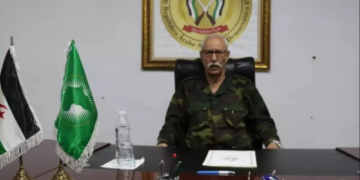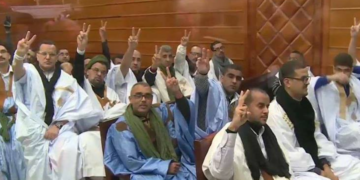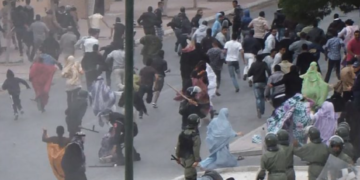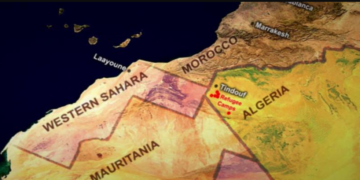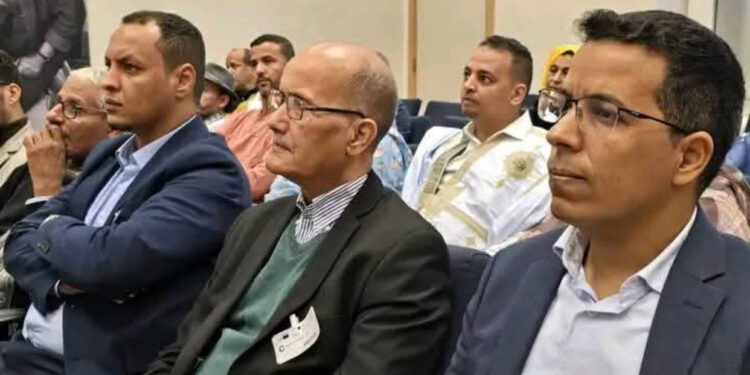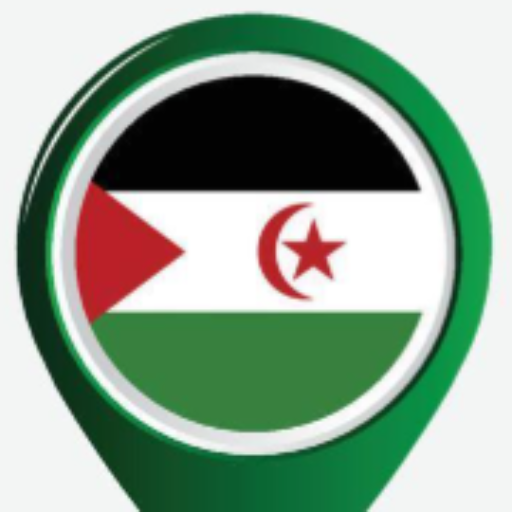In a move described as a serious attempt to dismantle the wall of silence, a delegation of Sahrawi journalists and media professionals from the Sahrawi Journalists and Writers Association carried out an official visit to the European Parliament at the invitation of the Basque political party EH Bildu.
The visit comes at a crucial moment, as Sahrawi journalists inside the occupied territories of Western Sahara continue to face one of the harshest systems of censorship and repression in the Maghreb region.
■ A Systematic Policy of Blackout and Media Siege
A closed and highly restrictive media environment is imposed on the occupied territories, making Western Sahara one of the most difficult regions in the world for independent journalists and international observers.
Several international organizations defending press freedom have repeatedly condemned Morocco’s expulsion of foreign journalists attempting to enter the region—policies that have led many to describe the area as a “black hole for information.”
Within this suffocating environment, Sahrawi journalists remain on the front line, confronting an entrenched Moroccan system designed to silence any attempt to document abuses or amplify Sahrawi voices.
■ Systematic Violations Against Journalists
During their meetings in the European Parliament, members of the Sahrawi delegation exposed a long list of violations suffered by journalists in the occupied cities, including:
• Judicial persecution through fabricated accusations such as “disturbing public order” or “separatism.”
• Media criminalization, portraying journalists as “agitators” or “foreign agents.”
• Constant surveillance of phones, internet activity, and daily movements.
• Night raids on homes and confiscation of equipment.
• Digital repression, including hacking of social media accounts and attacks on news websites.
• Physical assaults during coverage of protests and public gatherings.
• Total prohibition of foreign or independent media access to the region.
These practices turn journalism in Western Sahara into an existential risk, where filming a single street or recording a testimony can lead to imprisonment or physical harm.
■ A Visit at a Pivotal Political Moment
The visit comes amid sensitive political dynamics surrounding the Western Sahara conflict, with the international community reaffirming that the right of the Sahrawi people to self-determination is a non-negotiable principle.
Members of the delegation stressed that the future of Western Sahara can only be determined by its people, and that continued violations deepen the humanitarian crisis and weaken prospects for a peaceful solution.
■ Objectives of the Visit: Breaking the Blockade and Raising European Awareness
The delegation’s presence in the European Parliament aims to:
• Expose the media blackout imposed by Moroccan authorities.
• Alert European policymakers to the severity of the situation inside the occupied territories.
• Inform EU institutions about the violations affecting journalists and civilians.
• Mobilize support to open the region to international observers and journalists.
• Accelerate the handling of pending human-rights files, including political prisoners and unfair trials.
The meeting was attended by the Polisario Front’s representative in Brussels, Ms. Khadijetu Mokhtar, who emphasized that this media effort is not an isolated action but part of a broader strategy to restore the Western Sahara issue to the forefront of European attention after years of attempted marginalization.
■ The Core Message: Press Freedom Is Not a Privilege
Sahrawi journalists reaffirm that their struggle is not only a political battle for identity and rights but also a fight for the very existence of independent journalism in a region where truth is relentlessly targeted.
For journalists in the occupied territories, defending the right to report is inseparable from defending the right of an entire people to be heard.

